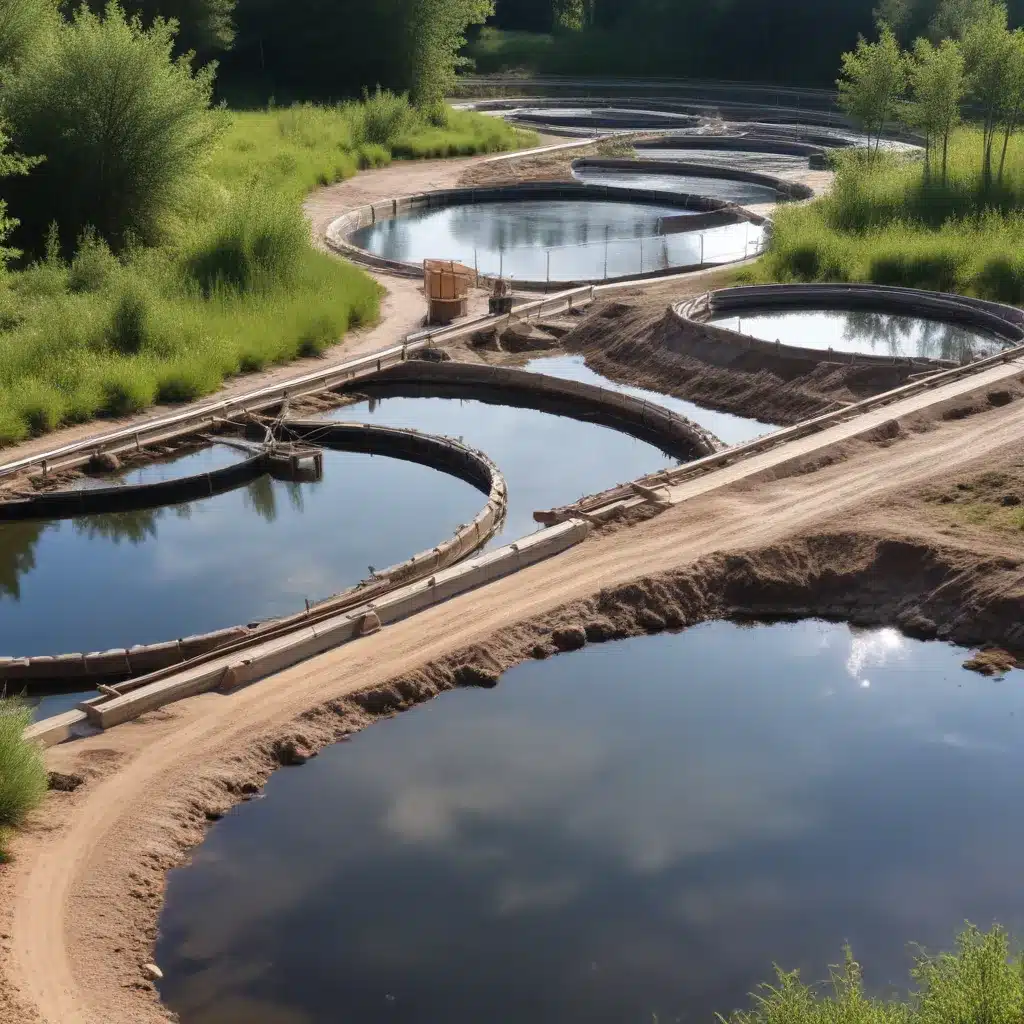
Revolutionizing Wastewater Management for a Sustainable Future
The global water landscape faces immense challenges, with escalating demand and the intensifying effects of climate change exacerbating issues of water scarcity. In this critical juncture, the urgent need for transformative solutions has never been more apparent. Eco-friendly innovations in wastewater treatment offer a promising pathway to reshape our approach to water management, fostering sustainability, resource efficiency, and environmental protection.
Embracing the Zero-Waste Water Cycle
The concept of the “Zero-Waste Water Cycle” encapsulates a revolutionary strategy that maximizes the benefits of every drop of water while minimizing waste. This holistic approach recognizes wastewater not as a burden, but as a treasure trove of valuable resources waiting to be reclaimed and repurposed.
“The Zero-Waste Water Cycle offers many solutions to quench the global thirst for water resources, with innovative techniques ranging from energy recovery in wastewater treatment to reclaiming nutrients and materials from the waste stream.”
Water reuse and recycling technologies, such as direct and indirect potable reuse, industrial and agricultural water recycling, and decentralized treatment systems, are pivotal in meeting surging water demands and alleviating scarcity. These advanced solutions can significantly reduce the strain on freshwater resources, making water management more sustainable.
Harnessing the Energy and Resources in Wastewater
Traditionally, wastewater treatment has been a resource-intensive process, consuming substantial energy. However, recent technological advancements have transformed this paradigm, enabling the extraction of energy from wastewater. Innovative techniques, including anaerobic digestion, microbial fuel cells, and heat recovery systems, are enabling wastewater treatment facilities to become net energy producers, reducing their environmental impact and contributing to a more sustainable water cycle.
“Wastewater is a treasure trove of nutrients and materials ripe for recapture and reuse, contributing to a circular economy.”
Beyond energy recovery, wastewater also contains a wealth of valuable resources, such as phosphorus, nitrogen, cellulose, and metals, which can be reclaimed and reused. Water utilities worldwide are adopting innovative techniques to extract and repurpose these resources, closing the loop and fostering a circular economy.
Integrating Nature-Based Solutions
Alongside technological innovations, nature-based solutions (NBS) are emerging as a powerful approach to wastewater treatment. Constructed wetlands (CWs) and high-rate algal ponds (HRAPs) are two prominent examples that harness the natural processes of soil, vegetation, and microorganisms to treat wastewater efficiently and sustainably.
“Constructed wetlands and high-rate algal ponds are nature-based solutions that offer lower environmental impacts, reduced energy and chemical consumption, and enhanced resource recovery compared to conventional wastewater treatment systems.”
These nature-based systems not only provide effective contaminant removal but also offer significant reductions in greenhouse gas emissions and energy requirements compared to traditional wastewater treatment methods. Furthermore, they can contribute to the recovery of valuable resources, such as biofuels and biofertilizers, further enhancing their sustainability.
Aligning with the Sustainable Development Goals
The integration of eco-innovations in wastewater treatment is not only a technical solution but also aligns with the broader objectives of the United Nations Sustainable Development Goals (SDGs). By embracing these principles, the water sector can contribute to the achievement of multiple SDGs, including:
SDG 6: Clean Water and Sanitation
Eco-innovations in wastewater treatment, such as water reuse, resource recovery, and nature-based solutions, directly address the goal of ensuring access to clean water and sanitation for all.
SDG 9: Industry, Innovation, and Infrastructure
The adoption of cutting-edge technologies and nature-based approaches in wastewater management supports the development of resilient and sustainable infrastructure, fostering innovation in the water sector.
SDG 12: Responsible Consumption and Production
The circular economy principles embodied in eco-innovations, including resource recovery and waste minimization, promote responsible consumption and production patterns in water management.
“By integrating eco-innovations that align with the SDGs, the water sector can drive sustainable development, enhance environmental protection, and secure a resilient future for communities worldwide.”
Overcoming Barriers and Facilitating Adoption
Despite the evident benefits of eco-innovations in wastewater treatment, their widespread adoption faces various challenges, including technical, economic, and institutional barriers. Addressing these obstacles is crucial to realizing the full potential of these sustainable solutions.
“Collaborative efforts involving utilities, policymakers, researchers, and community stakeholders are essential to overcome barriers and accelerate the implementation of eco-innovative wastewater treatment technologies.”
Technical Challenges
Integrating nature-based solutions and resource recovery systems into conventional treatment trains requires comprehensive assessments, pilot testing, and tailored design approaches to ensure optimal performance and seamless integration.
Economic Considerations
The upfront capital costs and operational expenses associated with eco-innovations can be perceived as barriers, necessitating innovative financing mechanisms and holistic cost-benefit analyses that account for long-term savings and environmental benefits.
Institutional and Policy Frameworks
Supportive regulatory environments, incentive programs, and capacity-building initiatives are crucial to encourage the adoption of eco-innovations and create an enabling ecosystem for their widespread implementation.
Toward a Sustainable Water Future
The water sector stands at a pivotal juncture, where the imperative for eco-friendly innovations has never been more apparent. By embracing the principles of the Zero-Waste Water Cycle, integrating nature-based solutions, and harnessing the inherent value in wastewater, we can transform the way we manage our most precious resource.
“Eco-innovations in wastewater treatment offer a holistic approach to sustainability, aligning with the Sustainable Development Goals and paving the way for a future where water is managed responsibly, efficiently, and in harmony with the natural environment.”
Through collaborative efforts and a shared commitment to sustainable development, the water sector can lead the charge in creating a more resilient and environmentally conscious future. By leveraging these cutting-edge solutions, we can not only address the pressing challenges of water scarcity and environmental degradation but also unlock new opportunities for resource recovery, economic growth, and community well-being.
Join us in this transformative journey as we reimagine the future of water management and work together to build a more sustainable and equitable world. Explore the resources and insights available at https://jointactionforwater.org/ to learn more and get involved in this essential endeavor.

